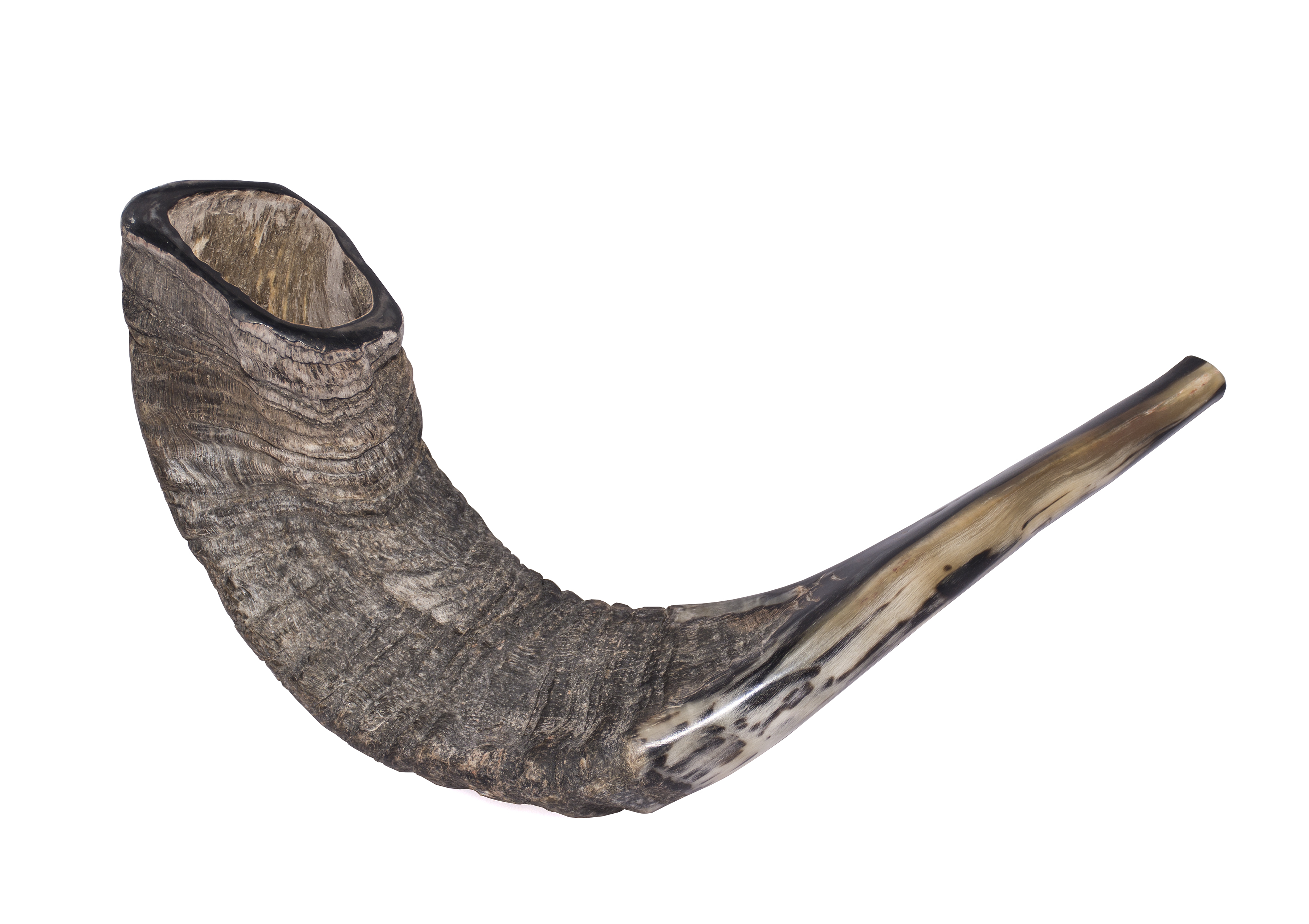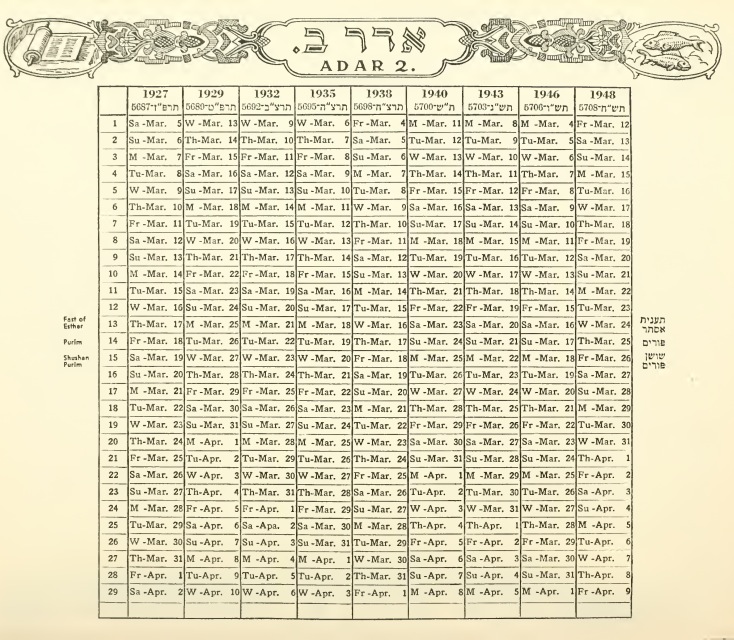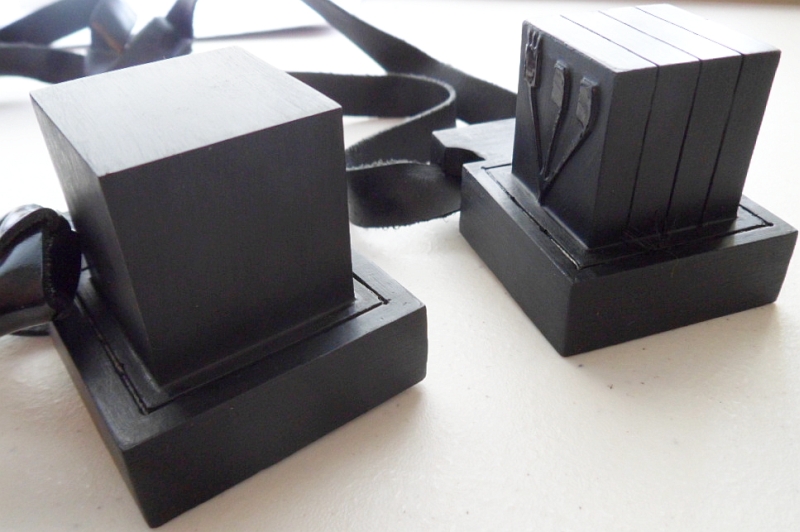|
Musaf
Mussaf (also spelled Musaf or Musof) is an additional service that is recited on Shabbat, Yom Tov, Chol Hamoed, and Rosh Chodesh. The service, which is traditionally combined with the Shacharit in synagogues, is considered to be additional to the regular services of Shacharit, Mincha, and Maariv. In contemporary Hebrew, the word may also signify a newspaper supplement. During the days of the Holy Temple, additional offerings were offered on these festive days. Mussaf is now recited in lieu of these offerings. ''Mussaf'' refers to both the full service (which includes the Amidah and all Jewish prayers that follow that are normally recited during Shacharit) and the Amidah itself that is recited for Mussaf. The main addition is a fourth blessing of the Amidah specially for these days. The correct time to recite musaf is until the seventh Halachic hour of the day (when the day is divided up into twelve-hour parts). If one did not recite it by this time, it is permissible to ... [...More Info...] [...Related Items...] OR: [Wikipedia] [Google] [Baidu] |
Jewish Services
Jewish prayer ( he, תְּפִלָּה, ; plural ; yi, תּפֿלה, tfile , plural ; Yinglish: davening from Yiddish 'pray') is the prayer recitation that forms part of the observance of Rabbinic Judaism. These prayers, often with instructions and commentary, are found in the ''Siddur'', the traditional Jewish prayer book. Prayer, as a "service of the heart", is in principle a Torah-based commandment. It is not time-dependent and is mandatory for both Jewish men and women. However, the rabbinic requirement to recite a specific prayer text does differentiate between men and women: Jewish men are obligated to recite three prayers each day within specific time ranges (''zmanim''), while, according to many approaches, women are only required to pray once or twice a day, and may not be required to recite a specific text. Traditionally, three prayer services are recited daily: * Morning prayer: ''Shacharit'' or ''Shaharit'' (, "of the dawn") * Afternoon prayer: ''Mincha' ... [...More Info...] [...Related Items...] OR: [Wikipedia] [Google] [Baidu] |
Joseph (name)
Joseph is a common male given name, derived from the Hebrew Yosef (יוֹסֵף). "Joseph" is used, along with "Josef", mostly in English, French and partially German languages. This spelling is also found as a variant in the languages of the modern-day Nordic countries. In Portuguese and Spanish, the name is "José". In Arabic, including in the Quran, the name is spelled '' Yūsuf''. In Persian, the name is "Yousef". The name has enjoyed significant popularity in its many forms in numerous countries, and ''Joseph'' was one of the two names, along with ''Robert'', to have remained in the top 10 boys' names list in the US from 1925 to 1972. It is especially common in contemporary Israel, as either "Yossi" or "Yossef", and in Italy, where the name "Giuseppe" was the most common male name in the 20th century. In the first century CE, Joseph was the second most popular male name for Palestine Jews. In the Book of Genesis Joseph is Jacob's eleventh son and Rachel's first son, and k ... [...More Info...] [...Related Items...] OR: [Wikipedia] [Google] [Baidu] |
Shofar
A shofar ( ; from he, שׁוֹפָר, ) is an ancient musical horn typically made of a ram's horn, used for Jewish religious purposes. Like the modern bugle, the shofar lacks pitch-altering devices, with all pitch control done by varying the player's embouchure. The shofar is blown in synagogue services on Rosh Hashanah and at the end of Yom Kippur; it is also blown every weekday morning in the month of Elul running up to Rosh Hashanah. Shofars come in a variety of sizes and shapes, depending on the choice of animal and level of finish. Bible and rabbinic literature The shofar is mentioned frequently in the Hebrew Bible, the Talmud and rabbinic literature. In the first instance, in , the blast of a shofar emanating from the thick cloud on Mount Sinai makes the Israelites tremble in awe. The shofar was used to announce the new moon and the Jubilee year. The first day of Tishrei (now known as Rosh Hashana) is termed a "memorial of blowing", or "day of blowing", the shofar. ... [...More Info...] [...Related Items...] OR: [Wikipedia] [Google] [Baidu] |
Rosh Hashanah
Rosh HaShanah ( he, רֹאשׁ הַשָּׁנָה, , literally "head of the year") is the Jewish New Year. The biblical name for this holiday is Yom Teruah (, , lit. "day of shouting/blasting") It is the first of the Jewish High Holy Days (, , "Days of Awe"), as specified by Leviticus 23:23–25, that occur in the late summer/early autumn of the Northern Hemisphere. Rosh Hashanah begins a ten-day period of penitence culminating in Yom Kippur, as well as beginning the cycle of autumnal religious festivals running through Sukkot and ending in Shemini Atzeret. Rosh Hashanah is a two-day observance and celebration that begins on the first day of Tishrei, which is the seventh month of the ecclesiastical year. In contrast to the ecclesiastical lunar new year on the first day of the first month Nisan, the spring Passover month which marks Israel's exodus from Egypt, Rosh Hashanah marks the beginning of the civil year, according to the teachings of Judaism, and is the traditional ann ... [...More Info...] [...Related Items...] OR: [Wikipedia] [Google] [Baidu] |
Willful Sin
Willful may refer to: * Willful blindness, intentionally putting oneself in a position where oneself will be unaware of facts that would render oneself liable * Willful damage, vandalism * Willful violation Media * Willful Murder ''Willful Murder'' () is a 1981 Japanese drama film directed by Kei Kumai. It was entered into the 32nd Berlin International Film Festival. Cast * Tatsuya Nakadai * Kei Yamamoto * Yōko Asaji * Kaneko Iwasaki * Ichirō Nakatani * Junkichi Ori ..., a 1981 Japanese drama film directed by Kei Kumai * The Willful Child, a German fairy tale collected by the Brothers Grimm * The Willful Wife, an 1845 French ballet {{disambiguation ... [...More Info...] [...Related Items...] OR: [Wikipedia] [Google] [Baidu] |
Atonement In Judaism
Atonement in Judaism is the process of causing a transgression to be forgiven or pardoned. In Rabbinic Judaism In Rabbinic Judaism, atonement is achieved through repentance, which can be followed by some combination of the following: * confession * restitution * the occurrence of Yom Kippur (the day itself, as distinct from the Temple service performed on it) * tribulations (unpleasant life experiences) * the experience of dying. * the carrying out of a sentence of lashes or execution imposed by an ordained court (not now in existence) * Temple service (not now in existence, e.g. bringing a sacrifice). Which of these additions are required varies according to the severity of the sin, whether it was done willfully, in error, or under duress, whether it was against God alone or also against a fellow person, and whether the Temple service and ordained law courts are in existence or not. Repentance is needed in all cases of willful sin, and restitution is always required in th ... [...More Info...] [...Related Items...] OR: [Wikipedia] [Google] [Baidu] |
Hebrew Calendar
The Hebrew calendar ( he, הַלּוּחַ הָעִבְרִי, translit=HaLuah HaIvri), also called the Jewish calendar, is a lunisolar calendar used today for Jewish religious observance, and as an official calendar of the state of Israel. It determines the dates for Jewish holidays and the appropriate Torah reading, public reading of Weekly Torah portion, Torah portions, ''yahrzeits'' (dates to commemorate the death of a relative), and daily Psalm readings, among many ceremonial uses. In Israel, it is used for religious purposes, provides a time frame for agriculture, and is an official calendar for civil holidays, alongside the Gregorian calendar. The present Hebrew calendar is the result of a process of development, including a Babylonian calendar, Babylonian influence. Until the Tannaitic period (approximately 10–220 Common Era, CE), the calendar employed a new lunar phase, crescent moon, with an Intercalation (timekeeping), additional month normally added every two or ... [...More Info...] [...Related Items...] OR: [Wikipedia] [Google] [Baidu] |
Leap Year
A leap year (also known as an intercalary year or bissextile year) is a calendar year that contains an additional day (or, in the case of a lunisolar calendar, a month) added to keep the calendar year synchronized with the astronomical year or seasonal year. Because astronomical events and seasons do not repeat in a whole number of days, calendars that have a constant number of days in each year will unavoidably drift over time with respect to the event that the year is supposed to track, such as seasons. By inserting (called '' intercalating'' in technical terminology) an additional day or month into some years, the drift between a civilization's dating system and the physical properties of the Solar System can be corrected. A year that is not a leap year is a common year. For example, in the Gregorian calendar, each leap year has 366 days instead of 365, by extending February to 29 days rather than the common 28. These extra days occur in each year that is an integer multipl ... [...More Info...] [...Related Items...] OR: [Wikipedia] [Google] [Baidu] |
Peninei Halakha
Eliezer Melamed ( he, אליעזר מלמד, born 28 June 1961) is an Israeli Orthodox Zionist rabbi and the rosh yeshiva of Yeshivat Har Bracha, rabbi of the community Har Bracha, and author of the book series ''Peninei Halakha''. Biography Eliezer Melamed is the son of Rabbi Zalman Baruch Melamed, a student of Rabbi Zvi Yehuda Kook. Melamed's first name is the result of a dream Kook had on the occasion of his birth. Melamed attended classes given by Kook from age fifteen to twenty, and, like his father, considers Kook to be his most significant rabbi. Melamed is married to Inbal, daughter of the artist Tuvia Katz, and has thirteen children. Rabbinic and teaching career Melamed taught Talmud and Halakha in the Kollel of Rabbi Deutsch in Mea Shearim for half a year. The Kollel was headed by Rabbi Yitzchak Ginsburg, which gave Melamed the chance of learning as a Chevruta with Ginsburg and hearing many of his classes. Later on, he taught Talmud, and Emuna (Jewish philosophy) in par ... [...More Info...] [...Related Items...] OR: [Wikipedia] [Google] [Baidu] |
Eliezer Melamed
Eliezer Melamed ( he, אליעזר מלמד, born 28 June 1961) is an Israeli Orthodox Zionist rabbi and the rosh yeshiva of Yeshivat Har Bracha, rabbi of the community Har Bracha, and author of the book series ''Peninei Halakha''. Biography Eliezer Melamed is the son of Rabbi Zalman Baruch Melamed, a student of Rabbi Zvi Yehuda Kook. Melamed's first name is the result of a dream Kook had on the occasion of his birth. Melamed attended classes given by Kook from age fifteen to twenty, and, like his father, considers Kook to be his most significant rabbi. Melamed is married to Inbal, daughter of the artist Tuvia Katz, and has thirteen children. Rabbinic and teaching career Melamed taught Talmud and Halakha in the Kollel of Rabbi Deutsch in Mea Shearim for half a year. The Kollel was headed by Rabbi Yitzchak Ginsburg, which gave Melamed the chance of learning as a Chevruta with Ginsburg and hearing many of his classes. Later on, he taught Talmud, and Emuna (Jewish philosophy) in par ... [...More Info...] [...Related Items...] OR: [Wikipedia] [Google] [Baidu] |
Tefillin
Tefillin (; Modern Hebrew language, Israeli Hebrew: / ; Ashkenazim, Ashkenazic pronunciation: ), or phylacteries, are a set of small black leather boxes with leather straps containing scrolls of parchment inscribed with verses from the Torah. Tefillin are worn by adult Jews during weekday morning prayers. In Orthodox Judaism, Orthodox and traditional communities, they are worn solely by men, while some Reform Judaism , Reform and Conservative Judaism, Conservative (Masorti) communities allow them to be worn by both men and women. By traditional Jewish Law (halacha), women are exempt from most time-dependent positive commandments. Although "tefillin" is technically the plural form (the singular being "tefillah"), it is often used as a singular as well. The arm-tefillah (or ''shel yad'' [literally "of the hand"]) is placed on the upper (non-dominant) arm, and the strap wrapped around the forelimb, hand and middle finger; while the head-tefillah (or ''shel rosh'' [literally "of the ... [...More Info...] [...Related Items...] OR: [Wikipedia] [Google] [Baidu] |
Reform Judaism
Reform Judaism, also known as Liberal Judaism or Progressive Judaism, is a major Jewish denomination that emphasizes the evolving nature of Judaism, the superiority of its ethical aspects to its ceremonial ones, and belief in a continuous search for truth and knowledge, which is closely intertwined with human reason and not limited to the theophany at Mount Sinai. A highly liberal strand of Judaism, it is characterized by lessened stress on ritual and personal observance, regarding ''halakha ''Halakha'' (; he, הֲלָכָה, ), also transliterated as ''halacha'', ''halakhah'', and ''halocho'' ( ), is the collective body of Jewish religious laws which is derived from the written and Oral Torah. Halakha is based on biblical commandm ...'' (Jewish law) as non-binding and the individual Jew as autonomous, and great openness to external influences and progressive values. The origins of Reform Judaism lie in German Confederation, 19th-century Germany, where Rabbi Abraham Geige ... [...More Info...] [...Related Items...] OR: [Wikipedia] [Google] [Baidu] |
.jpg)




